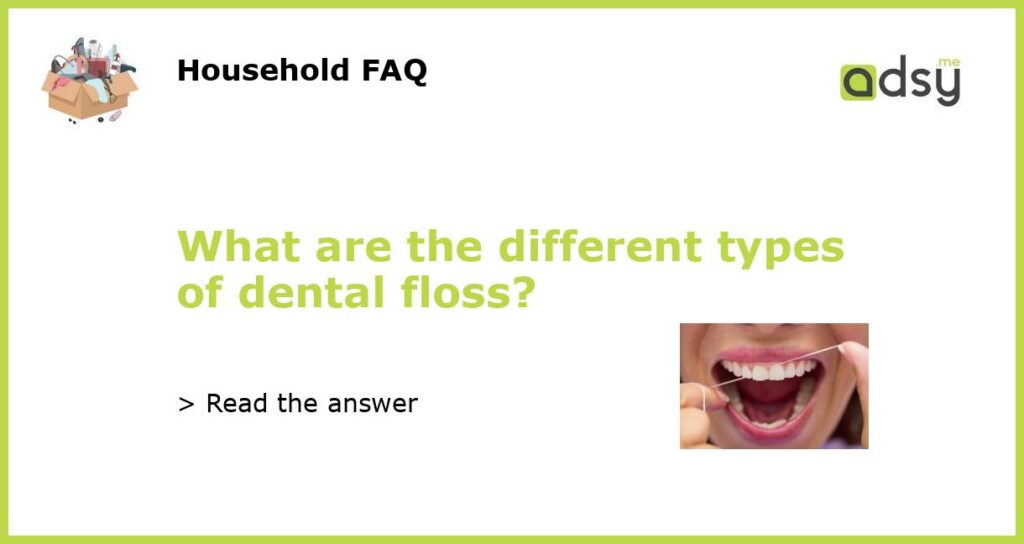Dental floss is an essential part of our oral hygiene routine. It helps prevent plaque buildup, removes food particles and reduces the risk of gum diseases. With a variety of dental floss available in the market, it can be difficult to decide which one to choose. Here, we will look at the different types of dental floss and their respective benefits.
Nylon Floss
Nylon floss is the most commonly used dental floss as it is inexpensive and widely available. This type of floss is made of numerous nylon fibers twisted together. It comes in different flavors and thicknesses, which makes it a versatile choice. However, some people find it difficult to maneuver between tightly spaced teeth or teeth with tight contacts, which is where waxed floss or dental tapes come in handy.
Waxed Floss
Waxed floss is similar to nylon floss but coated with wax to make it easier to slide between teeth. The waxed coating also prevents the floss from shredding or fraying, making it a good choice for people with tight contacts or crowded teeth. However, some people find that the wax coating leaves a residue on their teeth, which can be a turn-off.
Dental Tapes
Dental tapes are broader and flatter than traditional floss, making them an excellent choice for people with wide spaces between their teeth or those who have difficulty using traditional floss. This type of floss comes in both waxed and unwaxed varieties, and some brands offer a choice of flavors. People with braces, dental bridges or dental implants should consider using dental tape.
Water Flossers
Water flossers or oral irrigators are a relatively new addition to the market. These devices use a stream of pressurized water to remove food particles and plaque from between teeth and along the gum line. Water flossers are a great alternative for people with orthodontic appliances or those with sensitive gums as they don’t require any physical contact with the teeth or gums. However, water flossers can be expensive, and not everyone finds them effective in cleaning teeth as traditional floss.
Choosing the right type of dental floss depends on your specific needs, such as the spaces between your teeth, the presence of dental appliances, or sensitivity. Each type of floss has its unique benefits, so it is essential to try several types to find the one that works best for you. Talk to your dentist or dental hygienist for recommendations on which type of floss to use.






